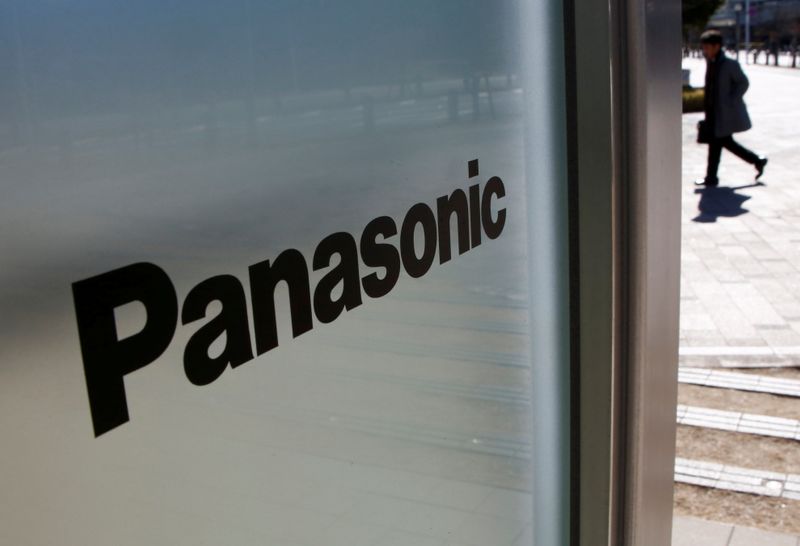TOKYO (Reuters) -Japan's Panasonic (OTC:PCRFY) Corp raised its full-year operating profit outlook by 12% on Thursday, helped by a share valuation gain and demand for automotive batteries and factory automation equipment.
Panasonic raised its profit forecast for the year to March 31 to 370 billion yen ($3.25 billion) from 330 billion yen. The prediction is higher than a mean 368.1 billion yen profit based on forecasts from 20 analysts, Refinitiv data shows.
That improved outlook was largely the result of a 58.3 billion yen gain in the value of the company's 20% stake in Blue Yonder after it bought https://www.reuters.com/business/panasonic-says-it-will-buy-us-supply-chain-software-firm-blue-yonder-2021-04-23 the rest of U.S. software company for $7.1 billion in September.
That acquisition is part of a strategy to shift away from low-margin consumer electronics. The conglomerate is also expanding its auto batteries business and bolstering sales of machinery to manufacturing companies.
Panasonic sold https://www.reuters.com/business/panasonic-sold-its-entire-stake-tesla-last-fiscal-year-nikkei-2021-06-24 its stake in Tesla (NASDAQ:TSLA) Inc for about 400 billion yen to help fund the acquisition of Blue Yonder, which uses machine learning to help companies manage supply chains by connecting factories to warehouses and retailers.
Despite the sale of Tesla shares, it is increasing sales of auto batteries to the U.S. company as global demand for electric vehicles surge https://www.reuters.com/business/cop/major-carmakers-electric-vehicle-investment-production-goals-2021-10-26 amid stricter limits on carbon emissions.
Panasonic on Monday unveiled https://www.reuters.com/technology/panasonic-unveils-prototype-battery-tesla-2021-10-25 a new large prototype battery that will help Tesla lower production costs. Tesla claims the power unit will halve battery costs and help it ramp up battery production 100-fold by 2030.
For the three-months ending Sept. 30, Panasonic posted a profit of 96.8 billion yen, compared with a profit of 92.8 billion yen a year ago, worse than an estimated mean 105.9 billion yen profit from nine analyst surveyed by Refinitiv.
Component supply disruptions and higher material costs as a result of the pandemic hurt profits at some units, including appliances. A semiconductor shortage that forced carmakers to cut production also squeezed sales of automotive components, such as dashboard displays.

That chip shortage should begin easing in the remainder of the business year and improve after that, Chief Financial Officer Hirokazu Umeda told a press briefing.
($1 = 113.7100 yen)